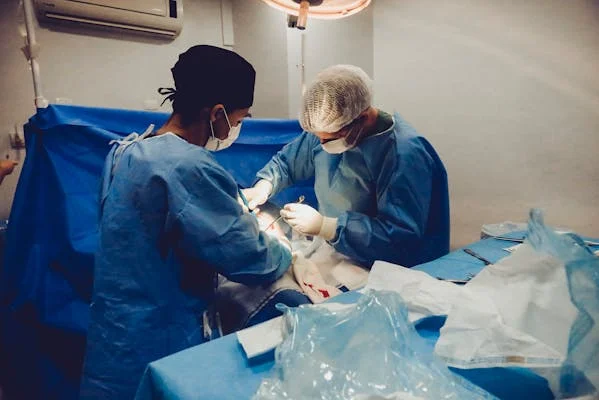Emervuy surgery, a relatively new and specialized procedure, is gaining attention for its innovative approach to relevant medical condition or specific purpose of Emervuy surgery. Patients considering this surgery often have questions about the procedure, its benefits, risks, and the recovery process. This guide will answer those questions, helping you understand everything you need to know before making a decision.
What is Emervuy Surgery?
Emervuy surgery is a specialized surgical technique used to address [describe the purpose of the surgery, e.g., certain types of joint issues, nerve problems, or tissue repair]. Unlike traditional methods, Emervuy surgery uses briefly explain innovative technique or tools, if relevant.
Key Features of Emervuy Surgery:
- Minimally invasive approach
- Shorter recovery time
- Reduced post-operative discomfort
Who is a Candidate for Emervuy Surgery?
Factors for Eligibility
Not everyone may be eligible for Emervuy . Ideal candidates generally:
- Are over the age of [relevant age, if applicable]
- Have a specific diagnosis that can benefit from Emervuy.
- Are in overall good health with no complicating medical conditions
Conditions Treated with Emervuy Surgery
Emervuy surger is often recommended for individuals suffering from:
- Chronic [relevant condition, e.g., joint pain, nerve compression]
- Specific injuries that require precise surgical intervention
- Conditions that have not responded to non-surgical treatments
Benefits of Emervuy Surgery
Emervuy surger offers several benefits over traditional procedures, including:
- Less Pain Post-Procedure
Due to its minimally invasive nature, many patients report experiencing less discomfort compared to more invasive surgeries. - Shorter Recovery Time
Most patients can expect to resume daily activities within specify average recovery duration. - Improved Precision
Advanced surgical tools used in Emervuy surger allow for greater accuracy, reducing the risk of complications and improving outcomes.
Comparison Table: Emervuy Surgery vs. Traditional Surgery
| Feature | Emervuy Surgery | Traditional Surgery |
|---|---|---|
| Invasiveness | Minimally invasive | Highly invasive |
| Recovery Time | Shorter | Longer |
| Pain Level | Lower | Higher |
| Risk of Infection | Lower | Higher |
Risks and Considerations
As with any surgical procedure, Emervuy surger has its risks, though they may be lower than those of traditional surgeries.
- Possible Side Effects: Temporary swelling, mild discomfort
- Rare Complications: Infection, adverse reactions to anesthesia
- Suitability: This procedure may not be suitable for patients with specific health conditions or those on certain medications.
What to Expect During Emervuy Surgery
Emervuy surger is typically performed in an outpatient setting and may last approximately [duration]. Here’s a breakdown of what to expect:
- Pre-Surgery Preparation
You will meet with your surgeon to discuss the procedure and receive instructions for the days leading up to surgery. - The Procedure
After administering anesthesia, the surgeon makes small incisions and uses specialized tools to carry out the procedure. - Post-Surgery
After the surgery, patients are usually monitored briefly before being allowed to go home the same day.
Recovery and Aftercare
Tips for a Smooth Recovery
Following Emervuy surger, most patients experience a smooth recovery. Here are some tips to support healing:
- Rest and Limit Activity
Avoid strenuous activities for [recommended duration]. - Follow-Up Visits
Attend all scheduled follow-ups to monitor healing progress. - Medication Management
Take prescribed medications as directed to reduce pain and prevent infections. - Physical Therapy
In some cases, physical therapy may be recommended to regain mobility and strength.
Conclusion
Emervuy surger presents a promising option for patients seeking a minimally invasive solution to [mention specific condition or problem it treats]. With benefits like shorter recovery times and reduced pain, it’s an option worth considering for eligible individuals. Are you ready to take the next step and explore how Emervuy surger could improve your quality of life.
Frequently Asked Questions
Q1: How long does Emervuy surgery take?
A: The procedure typically lasts around [time duration], depending on the complexity of the case.
Q2: Is Emervuy surgery covered by insurance?
A: Coverage may vary by provider, so it’s best to check with your insurance company to confirm if Emervuy surger is covered.
Q3: Can I return to work after the surgery?
A: Most patients can return to work within [timeframe], but this varies based on individual recovery and job type.







